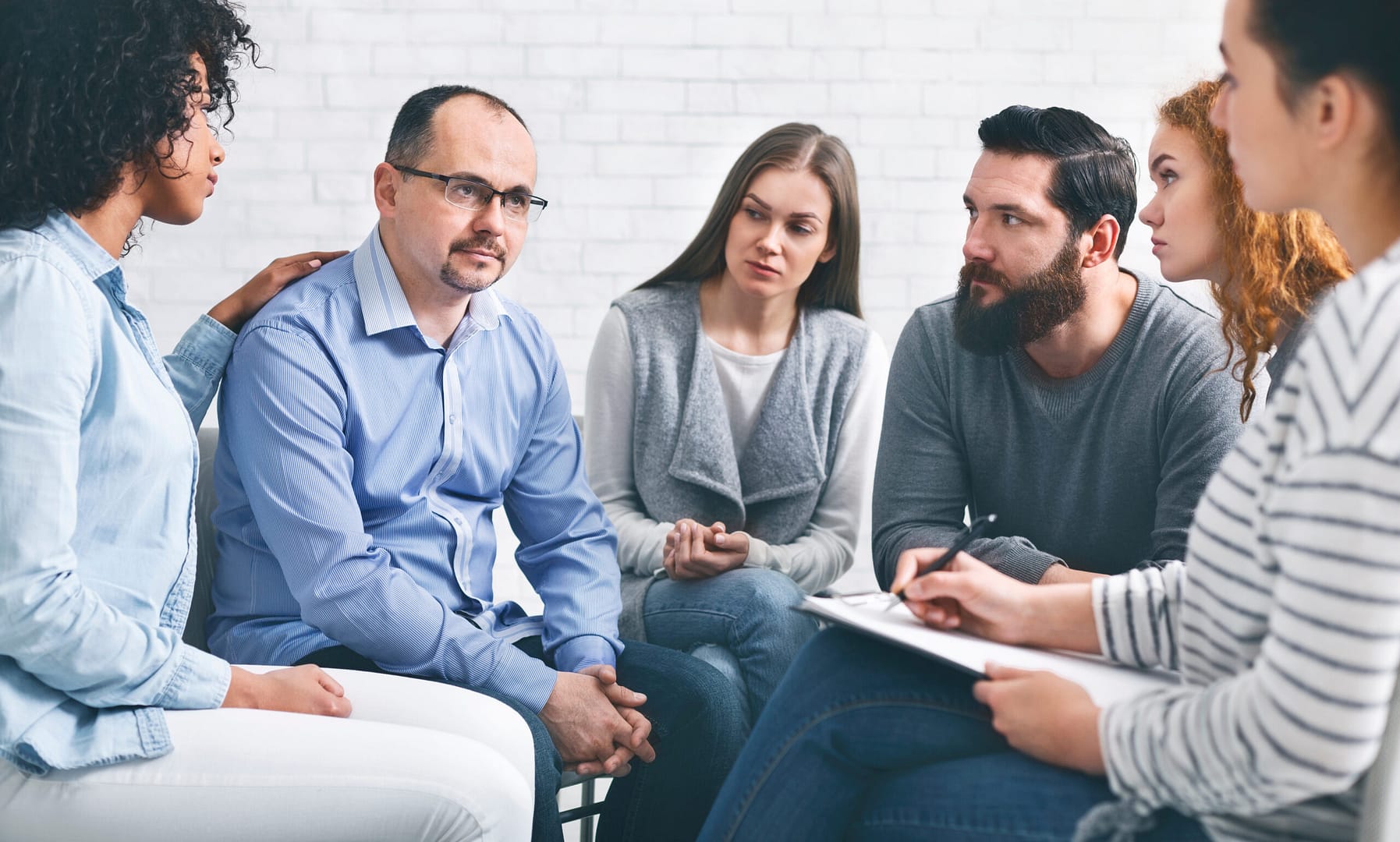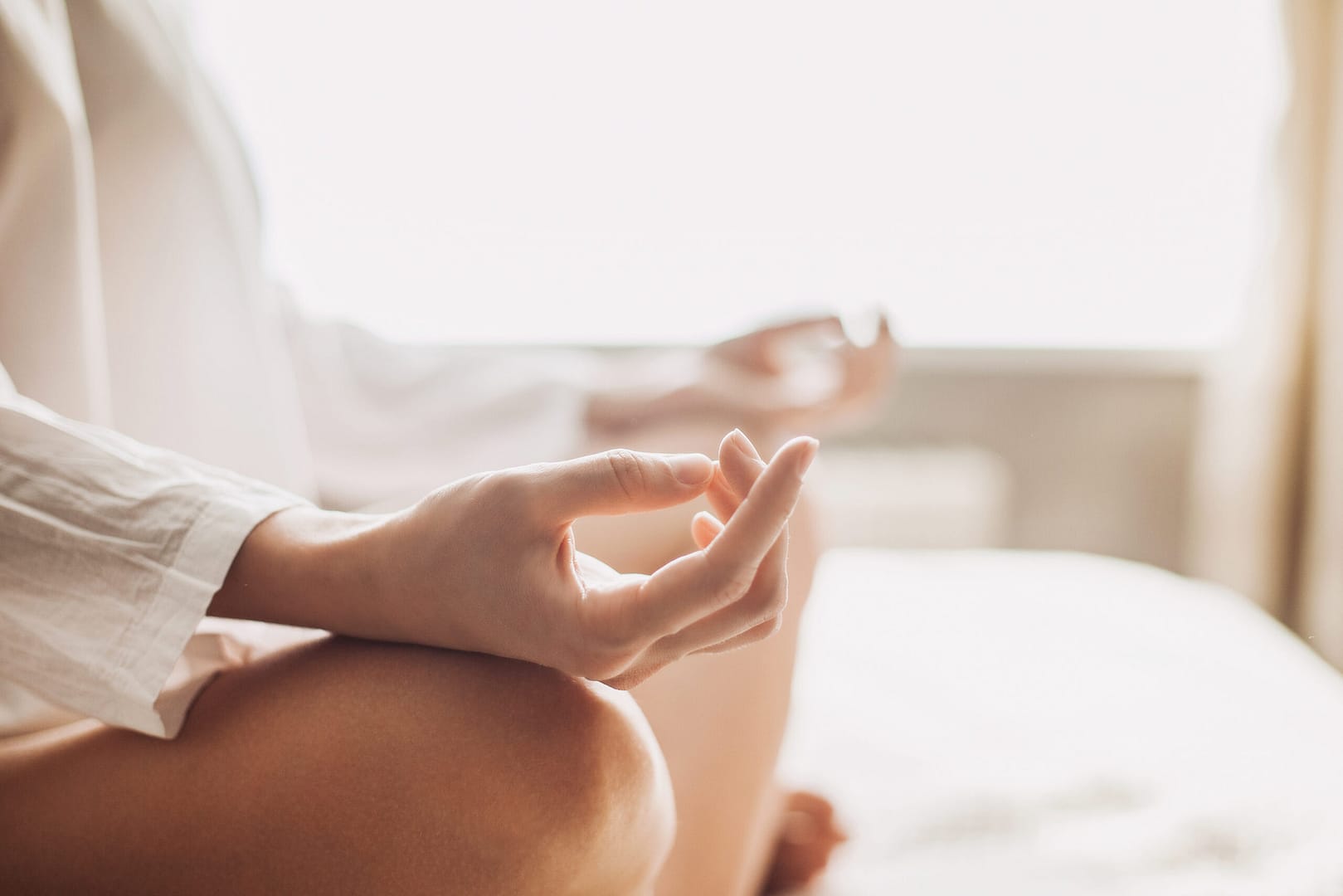We have treated more than 80,000+ patients on our mission to save one million lives.
- A Comprehensive Guide
Drug & Alcohol Rehab at Bracebridge Hall in Earleville, Maryland
Residents of the Eastern Shore of Maryland in the surrounding areas of Earleville, Maryland, battling addiction to alcohol, drugs, or prescription medications have many options for recovery. Drug and alcohol rehabs in the Free State offer personalized and evidence-based treatment plans and robust recovery communities for anyone moving from addiction to sober
living.
This page outlines what to expect from rehab in Maryland, whether you require inpatient, outpatient, or dual diagnosis treatment. You will discover how to connect with compassionate care for any type of addiction at an appropriate level of intensity.
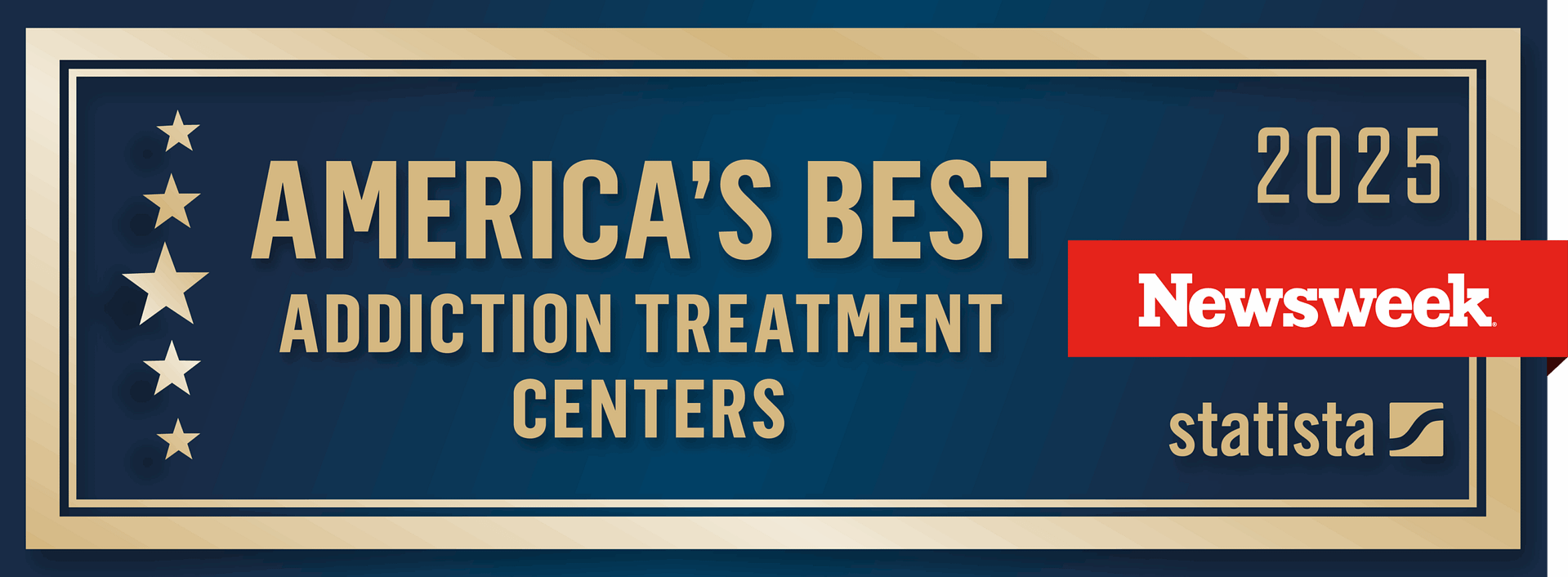
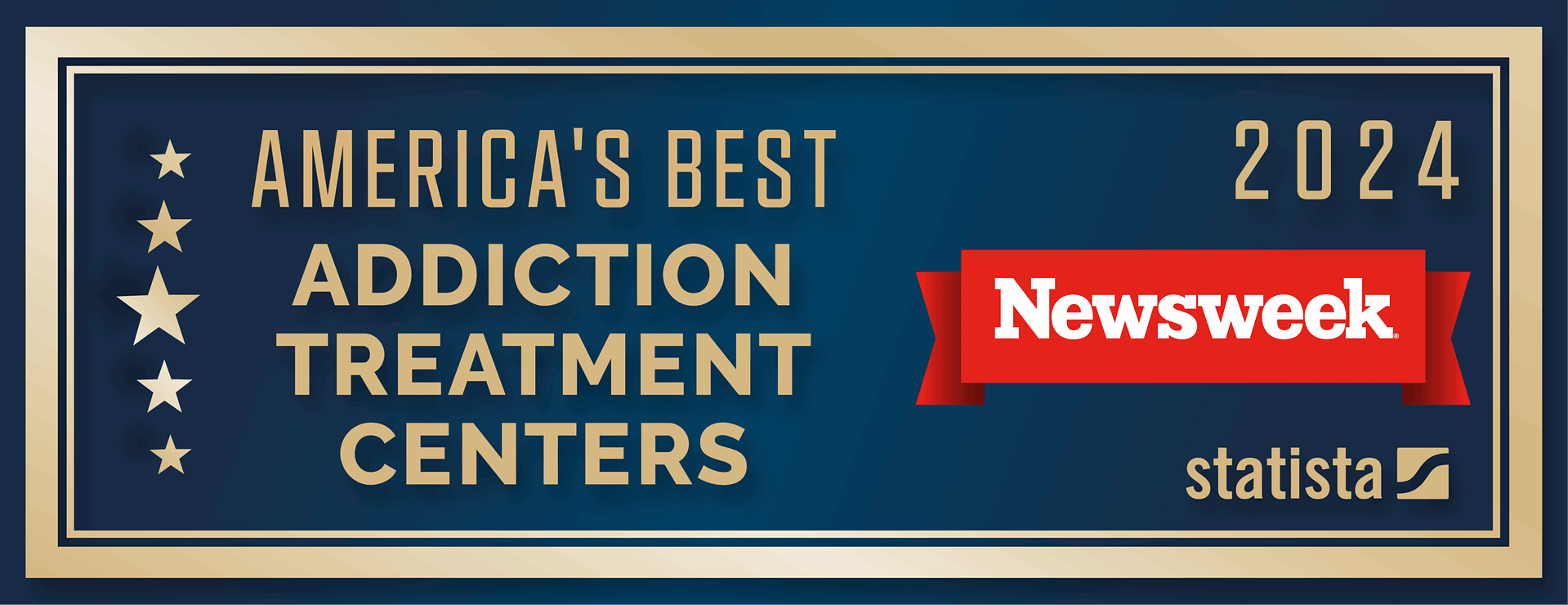
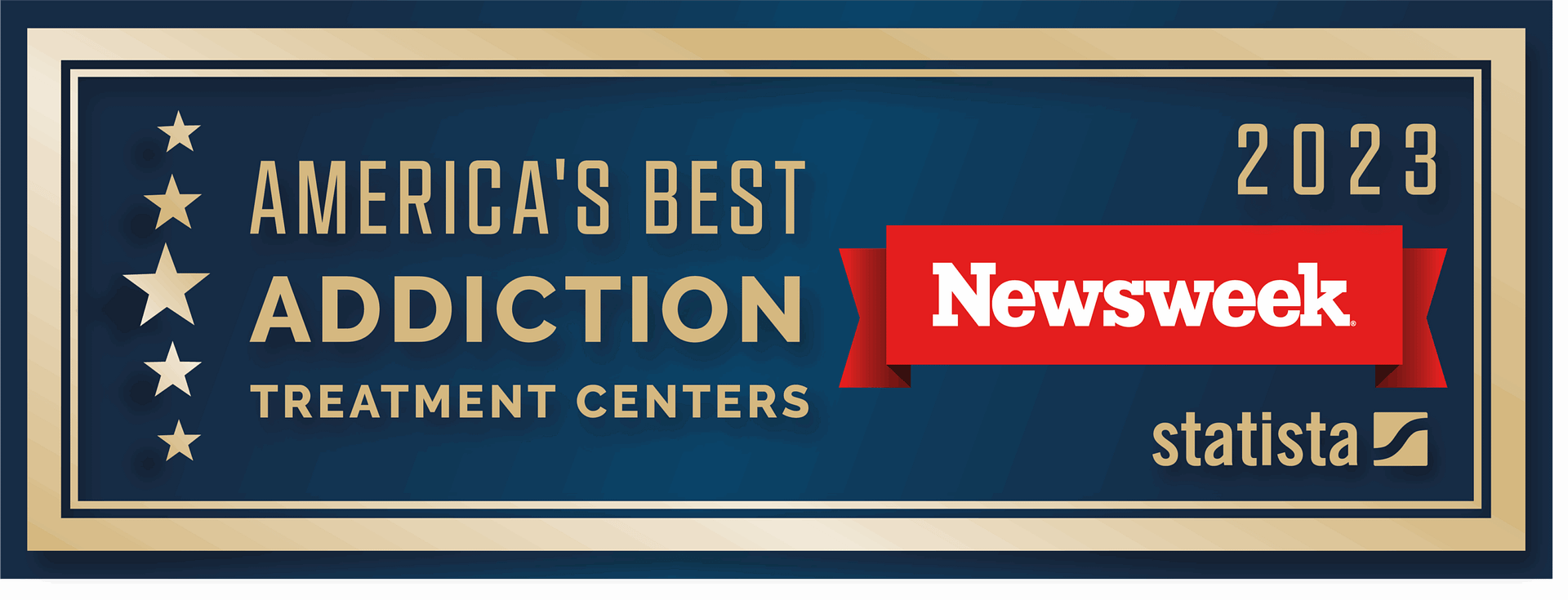
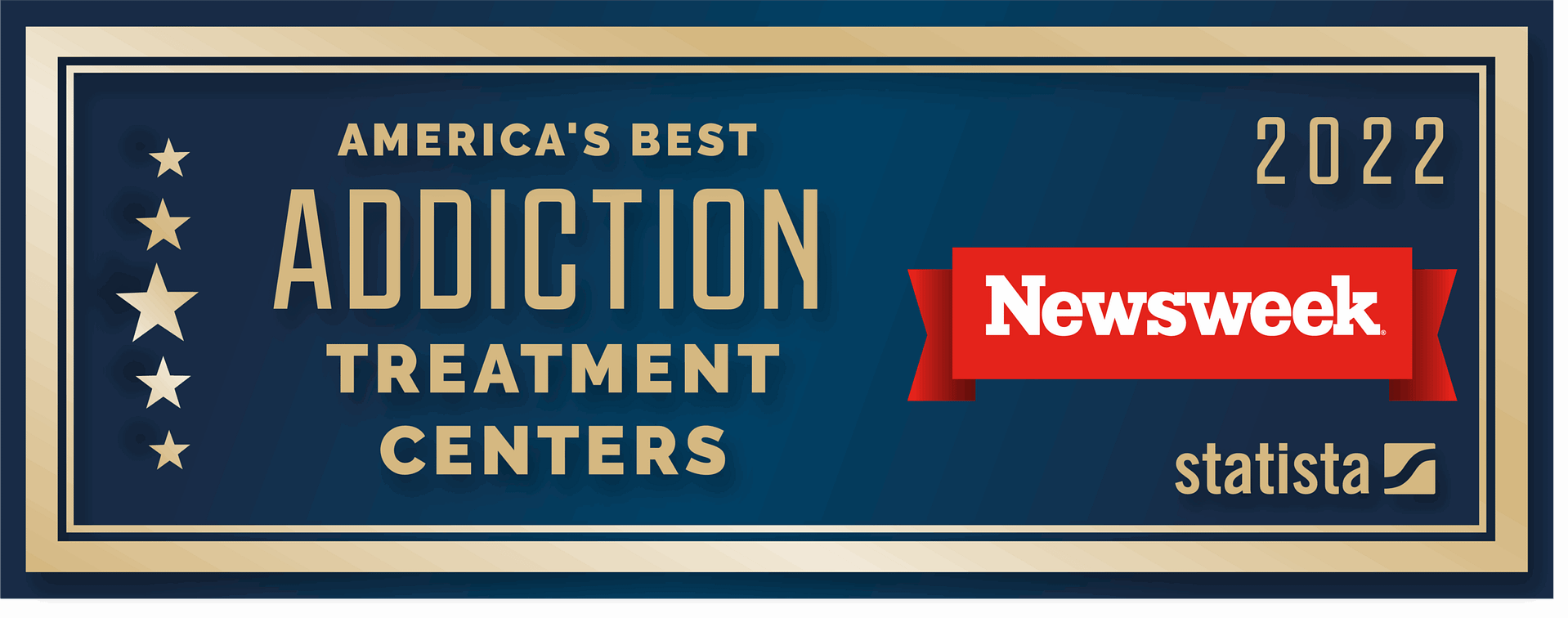
Inpatient Rehab at Bracebridge Hall in Earleville, Maryland
Inpatient treatment, including detox and residential rehab, is the most intensive approach to addiction treatment [1]. Individuals engage in structured therapy with 24/7 emotional and clinical care to address any addiction or mental health condition. This form of treatment is typically indicated for those with severe addictions, co-occurring mental health disorders, or unstable home environments. Inpatient rehab is also ideal for those who need supervised medical detox or a structured, live-in program to help them withdraw from drugs or alcohol.
Main Aspects of Inpatient Rehab
Every inpatient rehab program in Earleville varies slightly, although most unfold similarly, as follows:
Initial evaluation

Medical professionals assess the person’s physical health, mental health, history of substance use, and personal goals to develop a customized treatment plan. This initial evaluation also helps establish whether the person needs medical detox.
Medical detox

Science-based treatments

Medication-assisted treatment

Alcohol and opioid use disorders respond well to MAT (medication-assisted treatment), which combines FDA-approved medications with CBT or DBT to streamline withdrawal and promote ongoing abstinence.
Holistic interventions
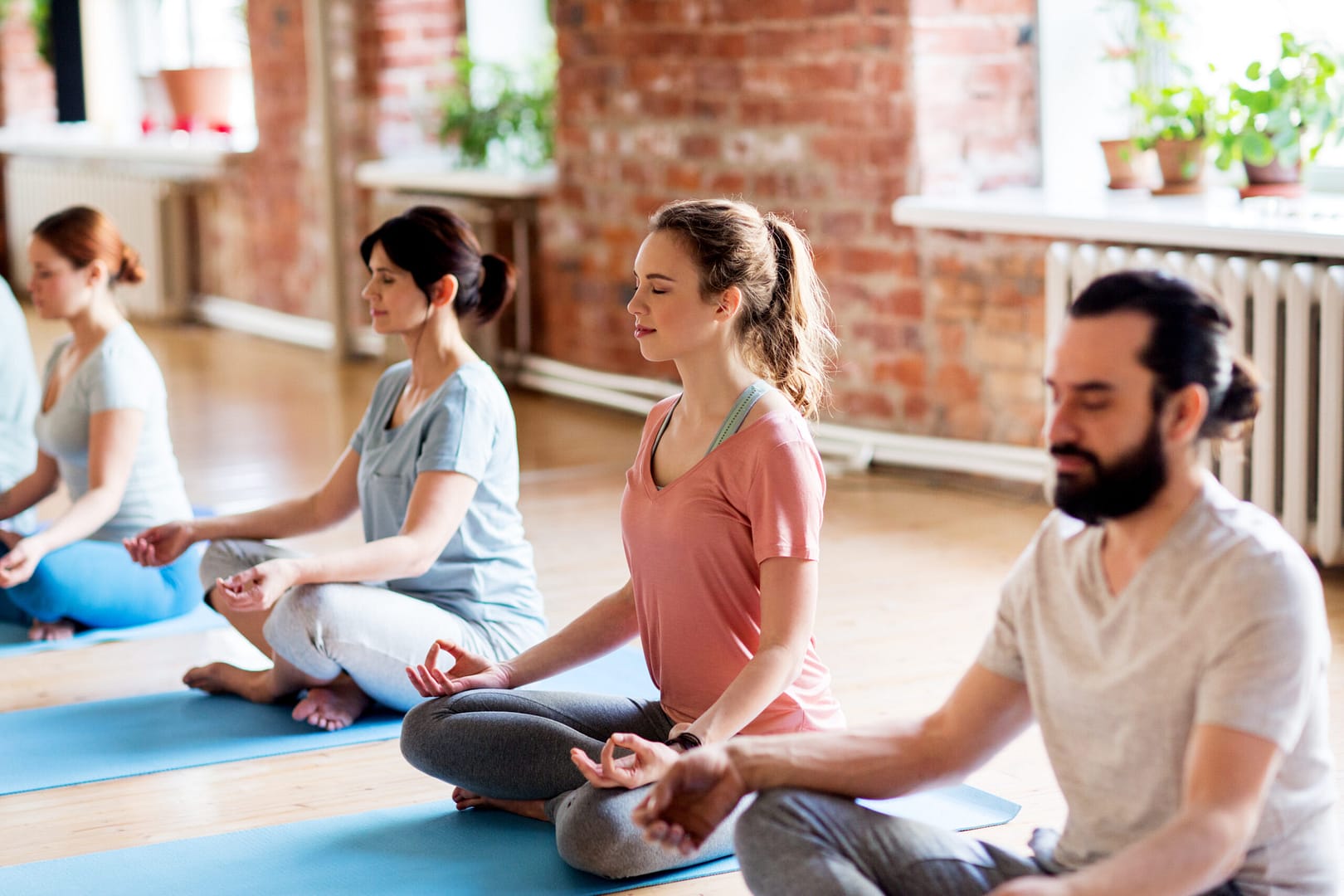
The best rehabs in Maryland often offer holistic practices to supplement science-backed treatments. This could include mindfulness, building coping skills, nutritional support, and creative expression like art.
Family education and coaching

Addiction impacts the whole family. Involving family members in the treatment process can help improve communication and conflict
management. It can also create a supportive environment conducive to long-term
recovery.
Outpatient Treatment Programs at Bracebridge Hall, Earleville, Maryland
Not everyone needs inpatient (detox or residential) rehab. Outpatient treatment programs in the Eastern Shore of Maryland enable people to engage in treatment without neglecting their everyday obligations. There are many types of outpatient programs at varying levels of intensity.
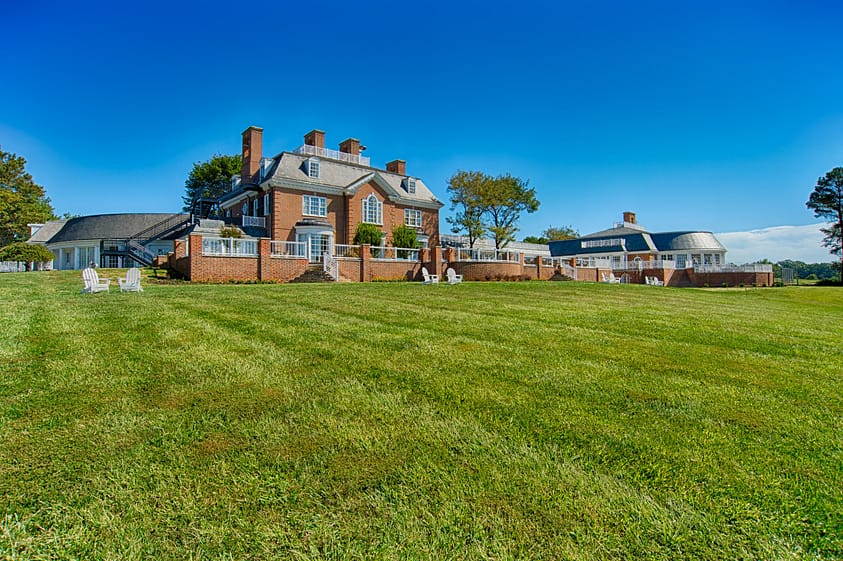
PHPs (partial hospitalization programs)
PHPs bridge the gap between residential rehab and outpatient programs by offering:
- Therapy sessions 5 days per week.
- Sessions 4 to 6 hours daily.
- Emotional and clinical care with no need for an overnight stay.
- Comparable to those found in residential rehab.
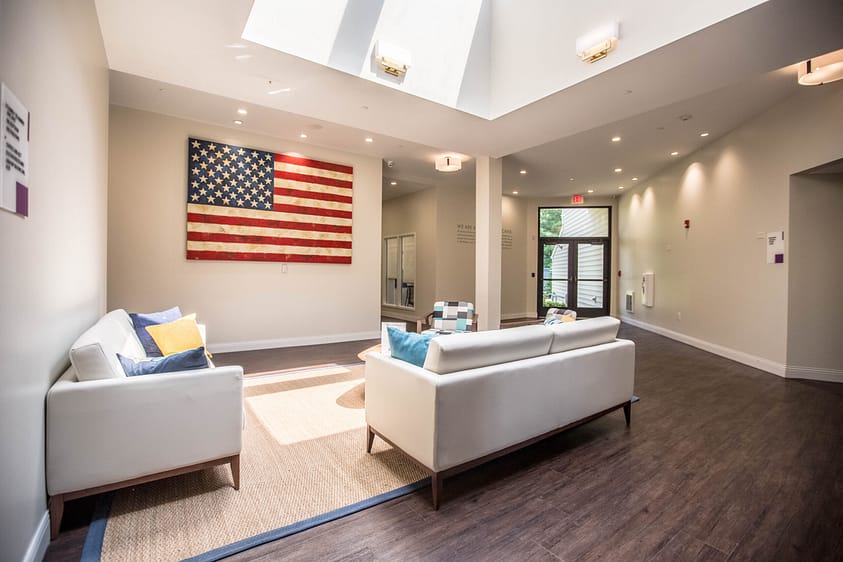
IOP (intensive outpatient program)
IOP can be a standalone or step-down option. Intensive outpatient programs involve:
- Therapy sessions are on 3 to 5 weekdays.
- Sessions of 2 to 4 hours daily.
- Individual and group therapy.
- Coping techniques and relapse prevention strategies.
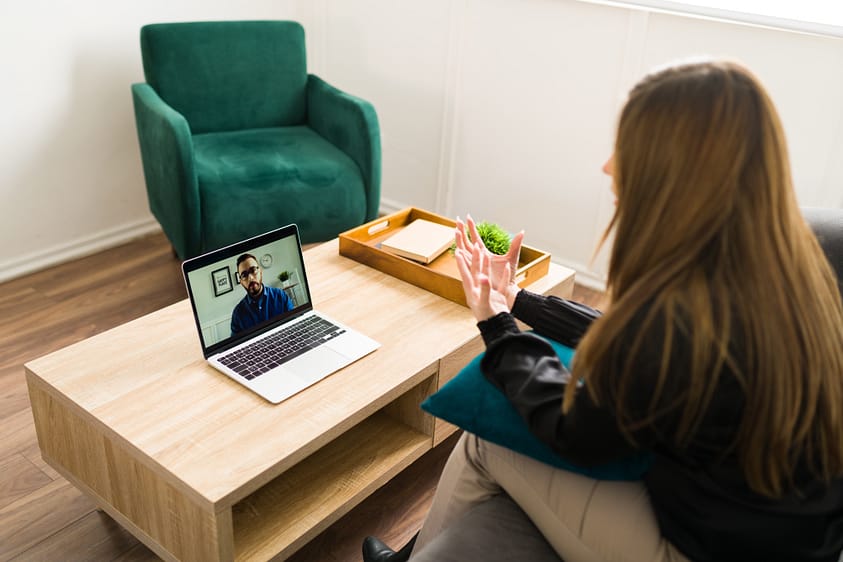
Virtual rehab
Remote addiction treatment services gained traction in 2020 as the pandemic impacted treatment providers and individuals in Maryland. Virtual rehab might include:
- Online access to support and therapy.
- Treatment sessions are scheduled to accommodate existing commitments.
- Accessible for people with transportation issues.
- Similar outcomes to regular addiction treatment for the right candidates.
Is the Complete Continuum of Care Always Necessary?
Studies suggest that the longer someone stays at rehab, the better the outcome [3]. The
complete continuum of care involves several levels, from inpatient care like detox and
residential rehab to outpatient services like PHP, IOP, and sober living residences. Benefits of following the full continuum of care include:
- Gradual transition: Moving through the continuum of care helps people gradually
implement recovery skills with diminishing levels of support, so they become more selfsufficient and confident. - Extended support: People can get continuing accountability and oversight
throughout all phases of the recovery journey. - Individualized progression: Treatment intensity can be adjusted according to the
person’s recovery goals and requirements. Support can be intensified if needed. - Developing coping skills: Individuals can consolidate the skills they learned in inpatient rehab as they transition to independent, sober living.
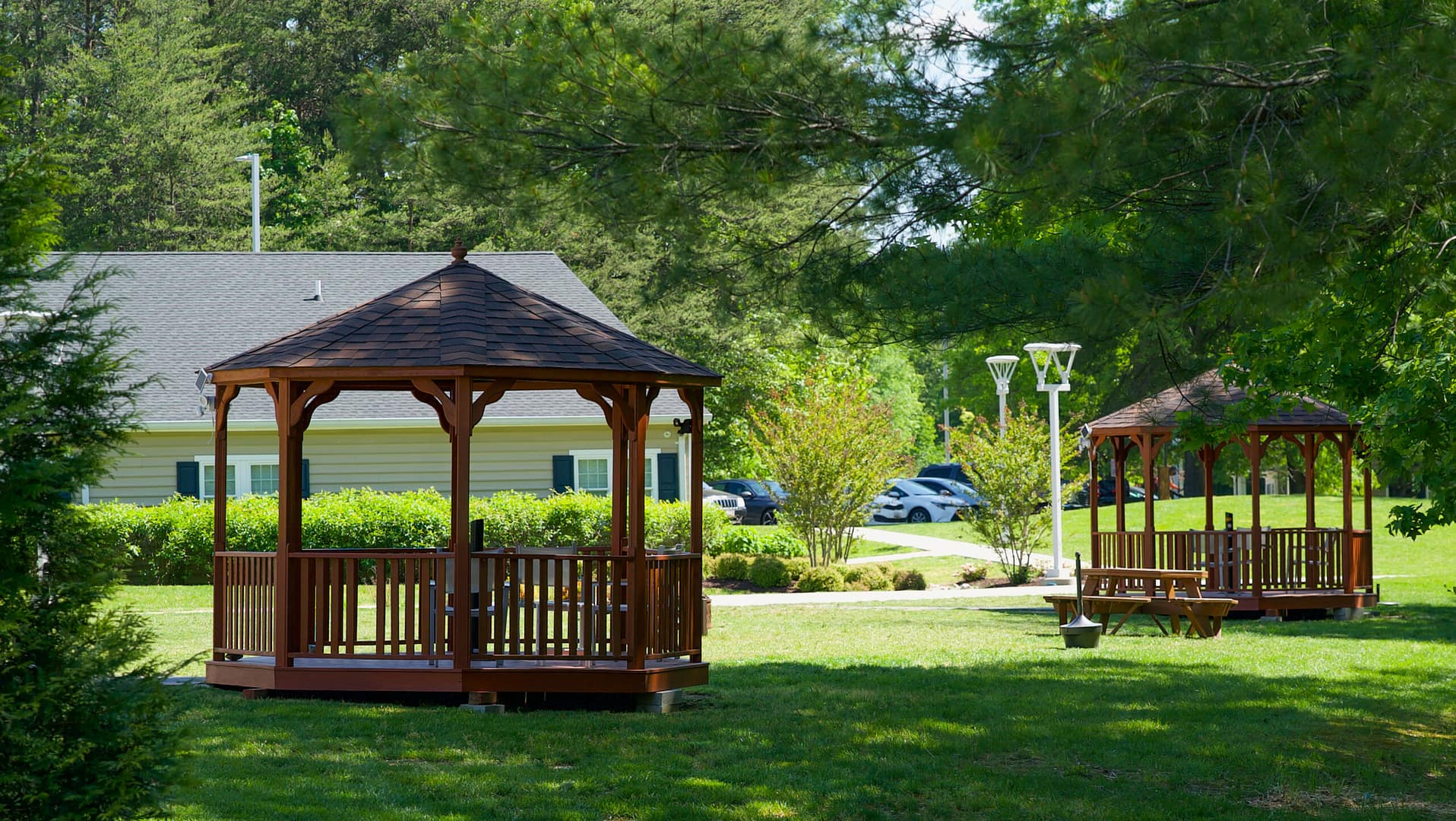
Community Support and Local Resources
Recovery from addiction involves more than completing a treatment program. Maryland residents can benefit from a variety of community resources to help them maintain long-term addiction recovery.
Peer Support Groups
Recovery Organizations
There are many recovery communities in Maryland, including:
- Sober recreational activities.
- Recovery coaching.
- Advocacy.
- Education, housing, and employment assistance.
Support Services
Support services available in Earleville, Maryland include:
- Coaching.
- Sober living communities.
- Legal aid.
- Vocational rehabilitation.
- Healthcare assistance.
Substance Abuse: Maryland Statistics
According to the Maryland Department of Health [4]:
people
1,870 people died of unintentional incidents related to drugs and alcohol in Maryland in 2023, a slight decrease from the 1878 people who lost their lives to drug and alcohol overdoses the previous year.
%
fatal overdose
Data from NCDAS (National Center for Drug Abuse Statistics) show that alcohol abuse is also a pressing concern in Maryland [5]:
- Higher mortality rates are associated with underage alcohol use than the national average.
- 15% of Maryland over-18s admit to binge drinking monthly.
- Maryland residents who engage in binge drinking consume between 5 and alcoholic drinks per episode.
- Chronic alcohol abuse is involved in 2,482 deaths each year in Maryland.
- In 2023, 287 people died in Maryland from alcohol combined with other substances. 56 people overdosed on alcohol alone.
Why Choose Recovery Centers of America?
Our Treatment Approach
Specialized Recovery Pathways
01
Foundations of Recovery
For those new to recovery, this pathway introduces core recovery concepts, provides education, and sets the stage for long-term sober living.
02
Fresh Start
Individuals already engaged in treatment find that this pathway helps them consolidate the coping skills, knowledge, and relapse prevention strategies they
learned in previous recovery attempts.
03
Balance
01 Foundations of Recovery
For those new to recovery, this pathway introduces core recovery concepts, provides education, and sets the stage for long-term sober living.
02 Fresh Start
03 Balance

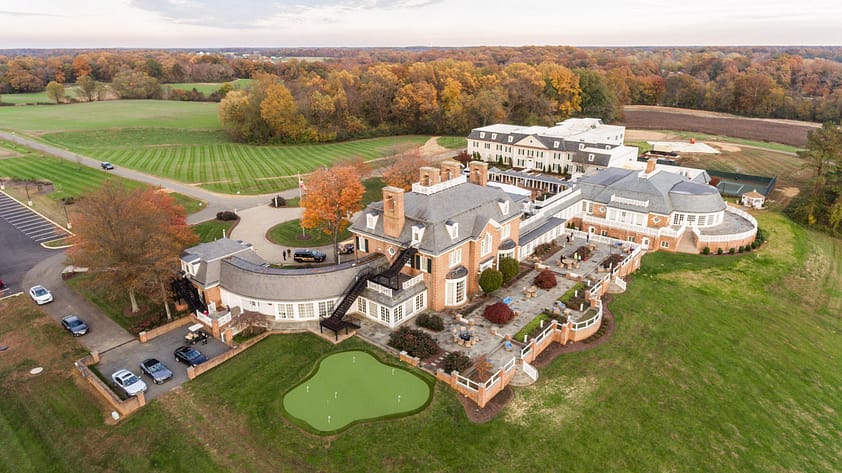
Trauma-Informed Care
Many substance use disorders are rooted in trauma and need specialized treatment that may
include:
- Assessments: Assessment and screening protocols that are sensitive to trauma.
- Treatment: Seeking Safety is a common approach in trauma-informed care.
- Environmental factors: Treatment is carried out in a safe space.
- Integration: Tackling substance abuse and trauma concurrently delivers the best
outcomes.
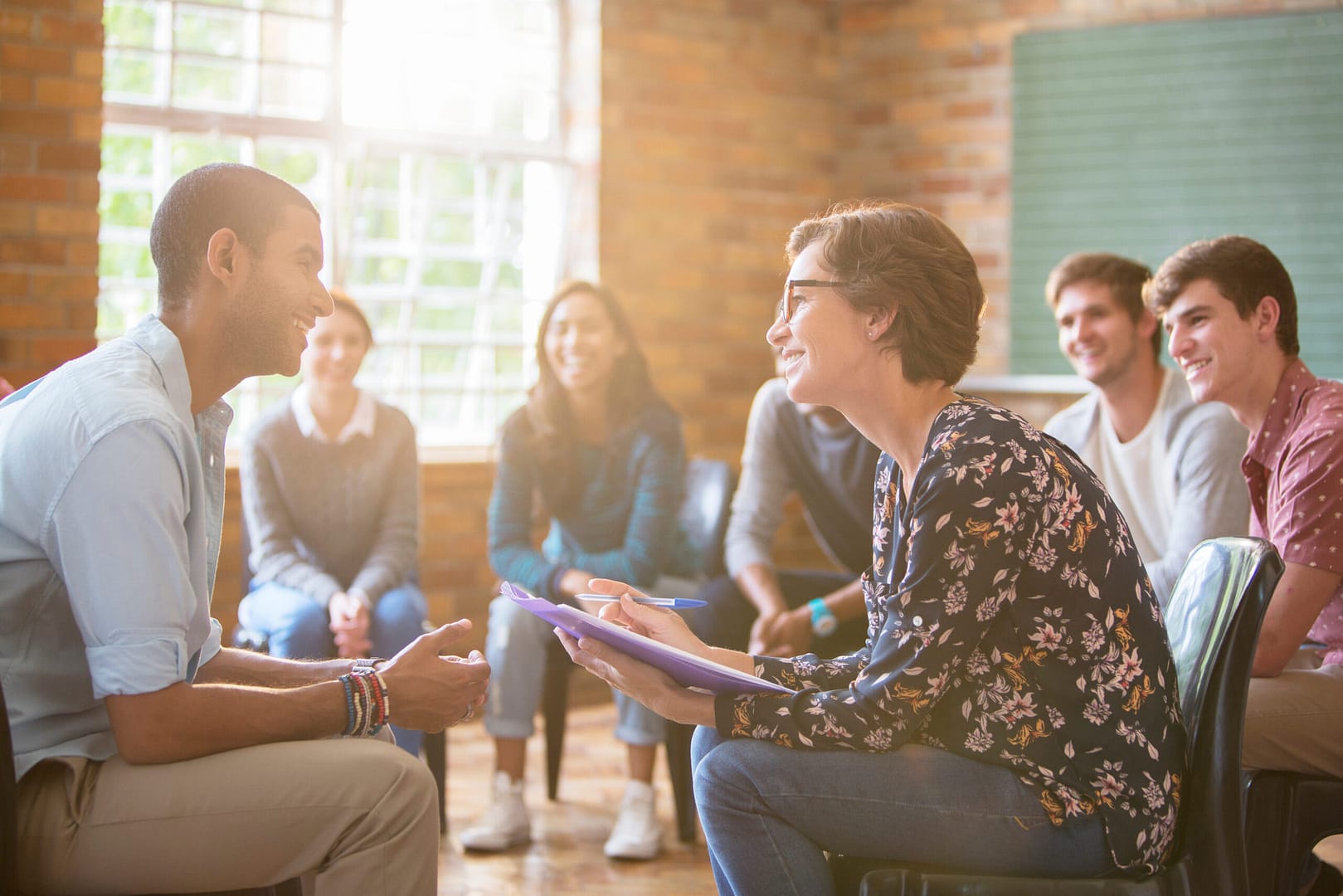
Evidence-Based Therapies
You can participate in a personalized array of treatments at RCA. These may include:
01 CBT (cognitive behavioral therapy)
CBT is a first-line treatment for addiction and mental health disorders. It enables people to
identify and alter negative thought patterns and behaviors and make positive changes.
- Core aspects: Developing coping mechanisms and exploring automatic negative thoughts and behavioral activation.
- Effectiveness: Research indicates that CBT can effectively treat all addictions [6]
- Application: CBT sessions can be delivered in both group and individual settings.
- Benefits: Development of skills central to sustained recovery from addiction.
02 DBT (dialectical behavior therapy)
DBT combines change-oriented strategies and acceptance techniques.
- Core aspects: Emotional regulation, interpersonal effectiveness, distress tolerance, and mindfulness.
- Effectiveness: Beneficial for those with a history of trauma or emotional dysregulation.
- Application: Individual therapy and group sessions for skills development.
- Benefits: Helps people manage emotions and reduce impulsive behaviors.
03 MI (motivational interviewing)
This modality helps people resolve ambivalence toward recovery so that they can make
behavioral changes.
- Core aspects: Rolling with resistance, developing discrepancy, empathy, and self-efficacy.
- Clinical application: Therapies are time-limited and combined with other treatments.
- Effectiveness: Helpful for individuals in the early stage of recovery, MI typically improves treatment retention and engagement.
- Process: Collaborative approach that avoids confrontation
04 Family Education and Coaching
Addiction affects the whole family, so effective treatment typically involves family members in the process by:
- Education: Educating family members about addiction to improve their understanding.
- Communication skills: Improving communication skills helps families interact
healthier, using supportive dialogue and avoiding triggering exchanges. - Boundary setting: Enabling family members to set healthy boundaries creates relational frameworks to protect the well-being of individuals and support the person’s addiction recovery.
- Healing processes: Imparting healing protocols to address chronic patterns of
substance abuse or wounds stemming from drug or alcohol abuse.

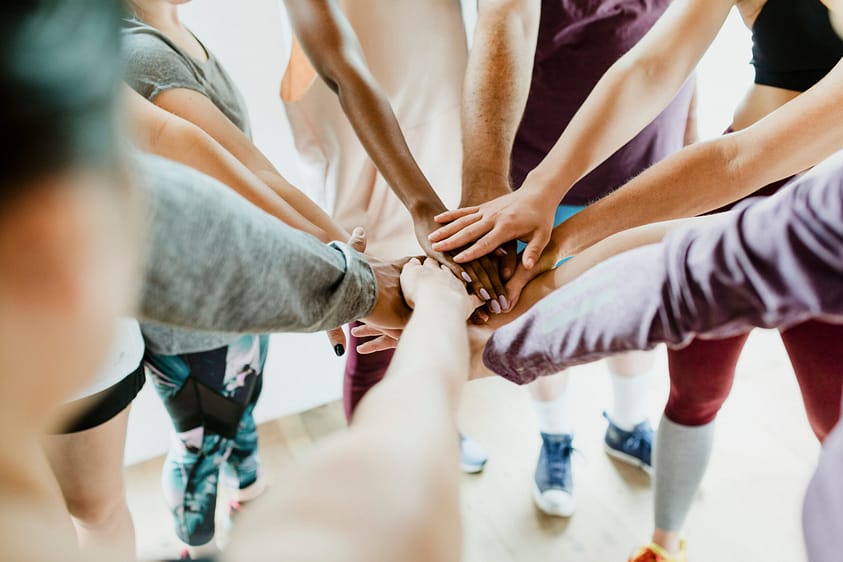
Medication-Assisted Treatment (MAT) in Earleville, Maryland
MAT blends medications approved by the FDA with talk therapies like CBT or DBT to manage alcohol and opioid addictions.
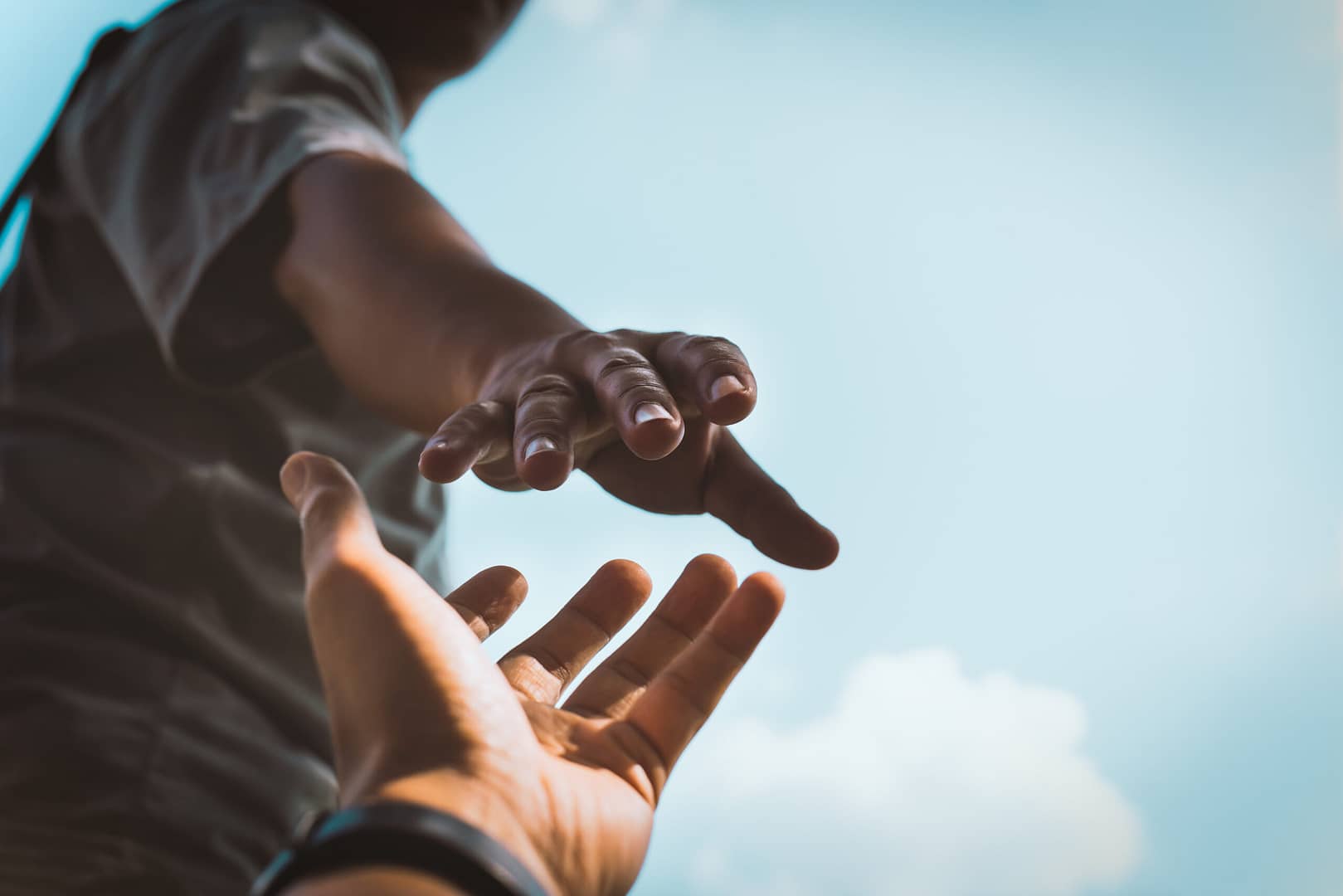
Methadone
- An opioid agonist that reduces the severity of withdrawal symptoms and cravings.
- The long-acting agonist is provided daily at specialized clinics. Ongoing medication compliance leads to take-home options.
- Administered only via a federally regulated program.
- Helps those with severe opioid addictions.
Buprenorphine
- Partial opioid agonist that reduces withdrawal symptoms and cravings.
- Can be administered in office-based settings to enhance accessibility.
- Less chance of overdose than with full agonists.
- It comes in daily dose tablets, films, or weekly and monthly injectables.
Naltrexone (Vivitrol)
- An opioid antagonist that blocks the euphoria associated with opioids.
- Non-addictive with no potential for abuse.
- Vivitrol is a monthly injectable that eliminates the need for daily dosing.
- The person must detox from opioids before initiating treatment.
- Perfect for those who are highly motivated in their recovery.
Methadone
- An opioid agonist that reduces the severity of withdrawal symptoms and cravings.
- The long-acting agonist is provided daily at specialized clinics. Ongoing medication compliance leads to take-home options.
- Administered only via a federally regulated program.
- Helps those with severe opioid addictions.
Buprenorphine
- Partial opioid agonist that reduces withdrawal symptoms and cravings.
- Can be administered in office-based settings to enhance accessibility.
- Less chance of overdose than with full agonists.
- It comes in daily dose tablets, films, or weekly and monthly injectables.
Naltrexone (Vivitrol)
- An opioid antagonist that blocks the euphoria associated with opioids.
- Non-addictive with no potential for abuse.
- Vivitrol is a monthly injectable that eliminates the need for daily dosing.
- The person must detox from opioids before initiating treatment.
- Perfect for those who are highly motivated in their recovery.

Acamprosate
- Minimizes the risk of post-acute withdrawal symptoms and alcohol cravings.
- Regulates brain chemistry altered by chronic alcohol abuse.
- Typically well-tolerated and associated with minimal side effects.
- Most effective when treatment starts after detox.
- Needs three-times-daily dosing.
- Safest option for those with significant liver disease.
Naltrexone
- Diminishes cravings and the euphoria triggered by alcohol consumption.
- Available as a tablet or an injectable.
- No requirement to detox before taking the medication.
- Complements therapies like CBT or DBT.
- Preferred treatment option for those with concurrent alcohol and opioid use disorders.
Disulfiram
- Provokes physical reactions if taken with alcohol.
- Deters alcohol consumption.
- Requires medication adherence and motivation.
- Best with supervised administration.
Acamprosate
- Minimizes the risk of post-acute withdrawal symptoms and alcohol cravings.
- Regulates brain chemistry altered by chronic alcohol abuse.
- Typically well-tolerated and associated with minimal side effects.
- Most effective when treatment starts after detox.
- Needs three-times-daily dosing.
- Safest option for those with significant liver disease.
Naltrexone
- Diminishes cravings and the euphoria triggered by alcohol consumption.
- Available as a tablet or an injectable.
- No requirement to detox before taking the medication.
- Complements therapies like CBT or DBT.
- Preferred treatment option for those with concurrent alcohol and opioid use disorders.
Disulfiram
- Provokes physical reactions if taken with alcohol.
- Deters alcohol consumption.
- Requires medication adherence and motivation.
- Best with supervised administration.
Coordinated Psychosocial Approach
Physicians in Maryland recognize that medication alone is often insufficient to promote long-term recovery from drug or alcohol addiction. A coordinated approach may involve:
- Evaluation: Initial evaluation to determine the suitability of a candidate for MAT.
- Continuing care: Assessing the effectiveness of treatment and watching for adverse side effects through ongoing check-ins.
- Coordinated therapy: Combining behavioral therapy with medications to address
physical dependence and the underlying psychological aspects of addiction. - Connection to community: Facilitating access to peer support networks.
- Knowledge-building: Explaining how medication-assisted treatments fit into the
broader addiction recovery framework.

Experienced Staff
At RCA, the multidisciplinary care team has specialized knowledge and brings compassion and empathy to all interactions with those engaged in recovery.
- Medical professionals: Healthcare professionals are certified in addiction treatment. Specialized nurse practitioners and nurses oversee MAT and detoxification.
- Therapists: Counselors at RCA have advanced degrees and can treat all addictions and mental health conditions. They lead therapy sessions in one-to-one and group settings.
- Staff with personal experience of addiction recovery: Certified staff at RCA often have personal knowledge of substance abuse recovery.
- Continuity coordinators: At RCA, dedicated staff help streamline your transition to everyday living, connect you with appropriate community resources and personalized aftercare options to help you maintain your recovery after rehab.
- Wellness practitioners: Our experts deliver treatments like mindfulness, meditation, physical wellness, and nutritional guidance.

Cutting-Edge Facilities
When you choose to begin your recovery at RCA’s Bracebridge Hall rehab center, you’ll do so in a peaceful, restorative environment designed for healing—inside and out. Nestled on a sprawling 500+ acre Sassafras River waterfront estate, our center offers an immersive natural experience. Patients enjoy serene walking trails, a tranquil pond perfect for fishing, tennis courts, and outdoor recreation areas. Here you’ll find a safe space where you can achieve and learn how to maintain sobriety from drugs, alcohol, or prescription medications.
Luxurious living spaces
Dignified rooms are well-maintained and offer a safe, comfortable environment for individuals in recovery.
From individual and group therapy to meditation and recreation, RCA has treatment venues to suit the purpose
Access resources that make detox safer and more comfortable, and benefit from ongoing monitoring.
RCA utilizes technology to support communication, treatment, and educational programming.
From individual and group therapy to meditation and recreation, RCA has treatment venues to suit the purpose
Specialized treatment venues
From individual and group therapy to meditation and recreation, RCA has treatment venues to suit the purpose.
Access resources that make detox safer and more comfortable, and benefit from ongoing monitoring.
RCA utilizes technology to support communication, treatment, and educational programming.
Testimonials and Success Stories
At RCA, we appreciate that everyone has a different experience of addiction and recovery, so we tailor treatment plans to suit by blending evidence-based and holistic interventions. The effectiveness of our approach is evidenced by the experiences of individuals who have engaged in treatment at one of our rehab centers.
Go here to see some of the many recovery stories from RCA alums. We have helped more than 79,500 people move from addiction to ongoing recovery. We aim to help 1 million people achieve lasting sobriety.
Recovery Centers of America in the Media
RCA’s innovative treatment approach and positive outcomes have been acknowledged in various media:
Ranked in Newsweek’s 2025 America’s Best Addiction Treatment Centers
National media coverage frequently highlights our practical approaches.
Commended for our outreach programs and community initiatives.
Frequently Asked Questions
What Can I Take with Me to Rehab?
Here is a packing list for anyone considering residential rehab at RCA:
- Clothing: Pack enough comfy clothing to last 10 days or so – we have laundry facilities at RCA. Include sleepwear and gym wear.
- Personal care: Make sure that any toiletries you bring are alcohol-free. Keep them in the original packaging. You can bring an electric razor. Straight razors are prohibited.
- Personal items: Bring some books, MP3 players without WiFi, and pictures of family.
- Medications: Keep prescription drugs in their original, labeled containers. These will be evaluated during the admissions process.
- Insurance and identification: Insurance cards, photo ID, and healthcare documents.
- Contact details: Addresses and phone numbers of friends and family.
The following items are prohibited:
- Perfume and mouthwash contain alcohol.
- Unapproved narcotic medications.
- Weapons.
- Lots of cash or costly jewelry.
- Cameras or internet-enabled devices.
You will get a comprehensive packing list during admissions.
How Long Does Treatment Last?
Treatment duration hinges on personal and medical needs, treatment goals, and recommendations from clinical staff. Timelines are general and vary from person to person:
- Detoxification: From five to 10 days, depending on withdrawal severity and the substance.
- Inpatient rehab: Between seven and 21 days, with longer durations possible, based on clinical necessity and insurance approval.
- PHP: From two to four weeks, with therapy sessions five days each week.
- IOP: Generally, six to eight weeks, with three to five weekly therapy sessions.
Our patients work with addiction specialists and medical professionals to determine the optimal treatment lengths for your circumstances and recovery goals. Plans can be tweaked as needed throughout the process and are individualized based on clinical and medical needs.
What Is Inpatient Rehab?
Inpatient rehab, including detox and residential rehab, is an immersive program to manage addiction that may include:
- Initial evaluation.
- 24/7 clinical and emotional care.
- Medical detoxification.
- Science-based and holistic practices.
- Removal from distractions and triggers.
- Supportive community of peers in recovery
Is Maryland a Good State to Engage in Addiction Treatment?
Maryland rehab centers deliver manifold benefits for those looking to kickstart their recovery from addiction, including:
- Diverse treatment modalities.
- Many different research institutions.
- Personalized healthcare.
- Supportive community of peers in recovery.
- Outstanding medical professionals and addiction specialists.
These elements mean Maryland is an excellent location for anyone seeking effective addiction treatment.
Where to Get Effective Addiction Treatment?
If you need help addressing any type of addiction, consider the following:
- Doctors: Your primary physician may be able to help with screenings and referrals to treatment providers, as well as initiate medication-assisted treatment.
- Emergency rooms: ERs can address acute clinical needs and help connect people with appropriate resources.
- Maryland addiction helpline: Phone 866-210-1303 for information about addiction and referrals to rehab centers.
- Health insurers: Your insurance carrier can put you in touch with in-network providers.
- Direct admissions: Reputable rehabs in Earleville, Maryland – including RCA – offer 24-hour admissions.
- Community organizations: Peer support groups can often help people find the best treatment options.
There is no universal pathway to recovery from addiction. The right level of care hinges on personal factors, the type of addiction, the intensity of withdrawal, co-occurring mental health disorders, and health insurance coverage.
Does Insurance Cover Maryland Rehab Costs?
Maryland has laws in place requiring health insurers to offer addiction treatment at a similar level to treatment for physical conditions. The specifics may differ from plan to plan and depending on the insurance company.
Maryland Medicaid provides coverage for substance abuse treatment at all intensity levels for eligible candidates. Medicare offers coverage for inpatient or outpatient programs with copayments and deductibles.
Insurance from the Maryland Health Insurance Marketplace must include treatment for substance use disorder as an essential health benefit. RCA accepts all major health insurance plans and offers verification before admission.
Taking the First Step Toward Recovery
If you need help getting back on track from addiction to drugs, alcohol, or prescription
medications in Earleville, Maryland contact RCA today.
Sources
[1] ASAM – About the ASAM criteria
[2] NIH – Overview, essential concepts, and definitions in detoxification
[3] ScienceDirect – A systematic review and meta-analysis of the efficacy of the long-term treatment and support of substance use disorders
[4 ] Maryland Department of Health – Unintentional Drug- and Alcohol-Related Intoxication Deaths in Maryland, 2023
[5] NCDAS – Alcohol Abuse Statistics
[6] NIH—Cognitive behavioral therapy for substance use disorders
